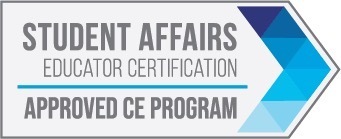
From Practice Back to Theory: Integrating Established Models into Student Well-being Work
-
You must log in to register
- Non-member - $999
- Member - $999
Health Promotion and Health Behavior theories and models can be accessible, concrete, and sometimes fun (Seriously!) This session will invite participants to learn some of the “greatest hits” of Health Promotion and Health Behavior theories to help fill the existing evidence-based practice gaps in student well-being work on their campus. Participants will have the opportunity to generate ideas for how to connect these theories to existing practice, identify potential harms and hazards, and consider how to center students who have traditionally been decentered in this work. Participants will be invited to co-create learning with each theory shared; this session seeks to enhance participants’ curiosity about one or more models to learn more. References will be shared with participants so they can take a deeper dive at the level at which they choose.
Learning Outcomes:
- Identify up to three accessible health promotion/health behavior theories that can be applied to improve the efficacy of student well-being work on campus.
- Examine their current campus efforts for potential unintended harmful side effects such as reactance, message rejection, furthering racism, victim-blaming, and/or erasure.
- Apply *one* theory to *one* existing or future part of student well-being work on their home campus.
Jennifer Jacobsen
Executive Director of Health & Wellness
Macalester College
Jen Jacobsen, MA MPH, serves as the executive director of Health & Wellness at Macalester College; previously, she was director of Health Promotion and Sexual Respect. Prior to this, she was the Director of Wellness & Prevention and deputy Title IX coordinator at Grinnell College for over a decade. Jen has participated in the NCAA Step UP! advisory board, The NCAA Sexual Assault Task Force, the NCAA Division III Alcohol and Other Drug advisory group, the ACHA Campus Safety and Violence Coalition, and currently serves on NASPA’s Culture of Respect, the NIAAA College Working Group, and the NCCHA Executive Board. Jen’s primary areas of research and practice include active bystanderism, the role of alcohol in both sex and sexual assault, mental health promotion, the intersection of student affairs and athletics, and leveraging a public health approach to work on college campuses. She is currently pursuing a doctor of philosophy with concentrations in implementation science and adolescent & emerging adult behavioral health.
Continuing Education Credits
NASPA has been approved by the Higher Education Consortium for Student Affairs Certification to provide CE credit for Certified Student Affairs Educators (CSAEd). NASPA is solely responsible for all aspects of this program.
Participants who view this session will be eligible for Continuing Education (CE) credits in the Core Student Affairs Educator Certification (CSAEd™) continuing education.
Guidelines for earning CE credit:
1.5 CE is awarded for attending this live session OR watching it on-demand for ONE category of Continuing Education. You can not receive more than 1.5 credit hours total.
No partial credit will be rewarded.
Participants must also complete the feedback survey in the Online Learning Community.
Reach out to virtuallearning@naspa.org for the continuing education certificate for Social Justice and Inclusion.
To receive CSAEd credit, attendees must complete the feedback survey that offers the certification in each session. Once you have attended all the live sessions or watched the on-demand sessions for which you would like to request credit, visit the Continuing Education (CE) website to fill out the Student Affairs Education Certification Request Form for all the sessions. All certificants must fill out one for the live session and a separate one for the on-demand sessions.
Visit the Continued Education (CE) website to learn more regarding deadlines and receive your certificate of completion for the Virtual Conference.


